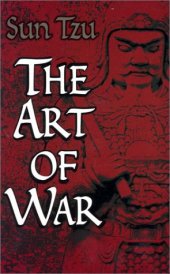This post may contain affiliate links. Please check out my privacy policy and disclosure policy.

Summary
“Listed in the Marine Corps Professional Reading Program, The Art of War has influenced military tactics since the being written around the 6th century B.C. by Sun Tzu. The book has been credits to tactics used by General Normal Schwarzkoph and General Colin Powell in the Persian Gulf War. The Art of War has also been linked to other military leaders such as Napoleon, Vo Nguyen Giap, ho Chin Minh, and Mao Zedong.
Although written by Sun Tzu as a military reference, The Art of War is full of advice that has helped people of all backgrounds to prepare for many of life’s battles. The teachings of Sun Tzu go beyond the traditional battlefields and have been used in the boardroom, in sports, and anywhere challenges need to be faced and overcome.”
-From the back flap of the 2010 edition by P.L Publications, translated from Chinese by Lionel Giles, M.A.
Review
This book…..I’m honestly still working on processing it.
The book, my version (there are TONS of translations) was only 73 pages, but in that small amount of time, a lot of information was thrown at you and it was REALLY deep stuff.
When I started reading this book, I kind of sat there like, “Why can’t the US Military follow these rules?” But then as you progress and you see the word “chariot” and words such like that. This book really doesn’t apply to modern warfare anymore as land battles can be won from the air with planes and drones now. But its the thought process that still can be applied. As it said on the back cover, it’s good to apply to life and you most definitely can do that.
This is an older read, just because younger people won’t understand it at all. I had a hard enough time with it. You were constantly re-reading points to make sure that you actually understood what was written.
I do recommend reading this book just because of some of the points in it. None of this I would ever use because I am not a soldier, but still, the though process which is suggested in some of the points in the book are interesting and can be applied to life’s challenges.
There isn’t much else to say about it. It’s a classic, and an ‘easy’ read so if you have some spare time, go and check it out.
Let me know what you think while you’re at it ^.^
Happy reading!
P.S. Unfortunately I can’t find the cover of MY version of the book, but I love it. It’s a guy holding a Katana with a sunset behind him. All you see are his arms grasping the weapon. And with my personal love of Katanas…I just had to xD.
